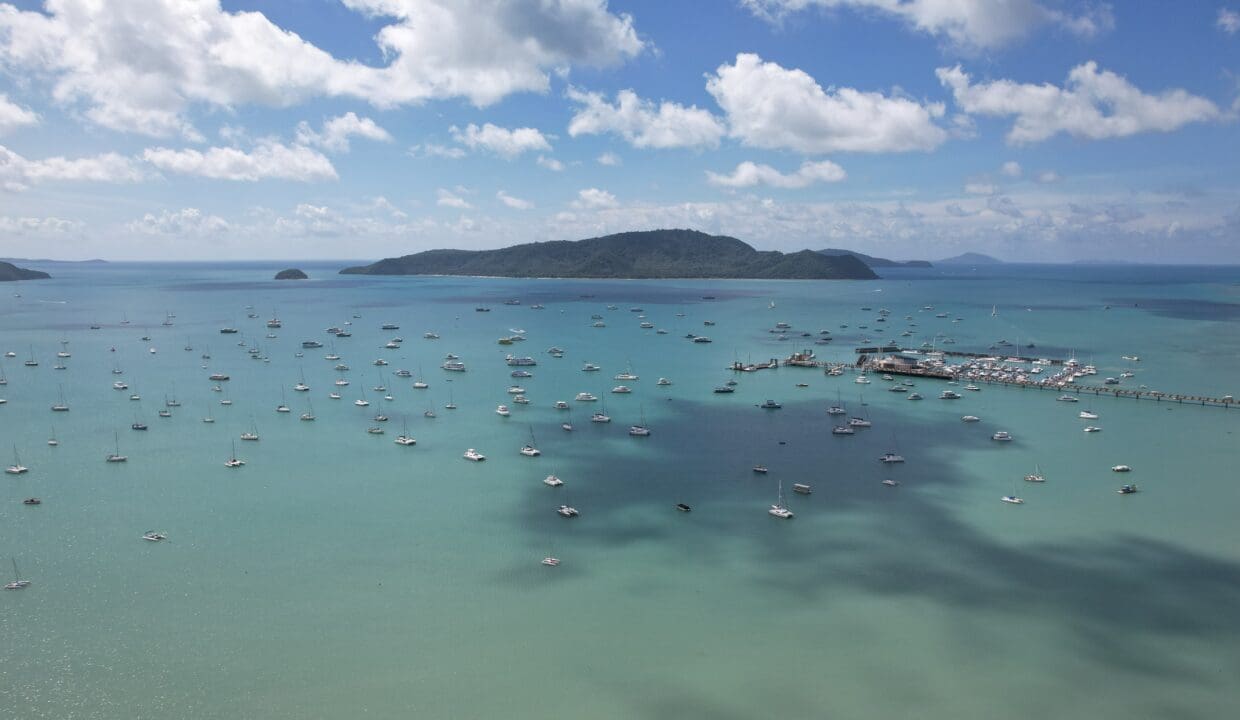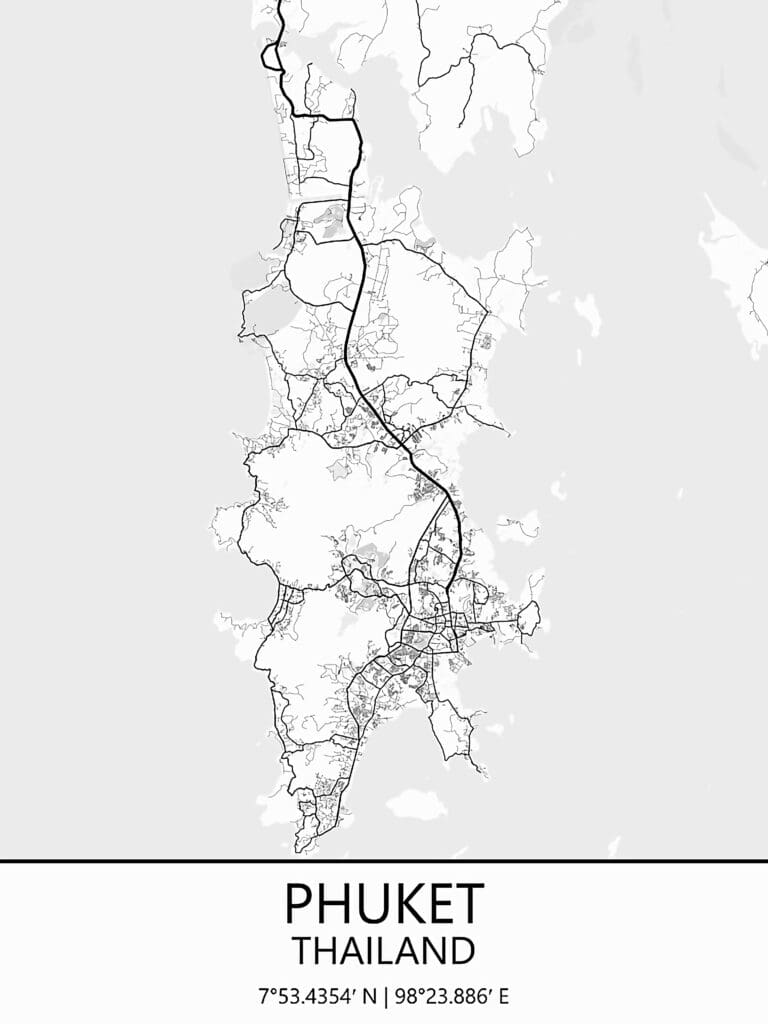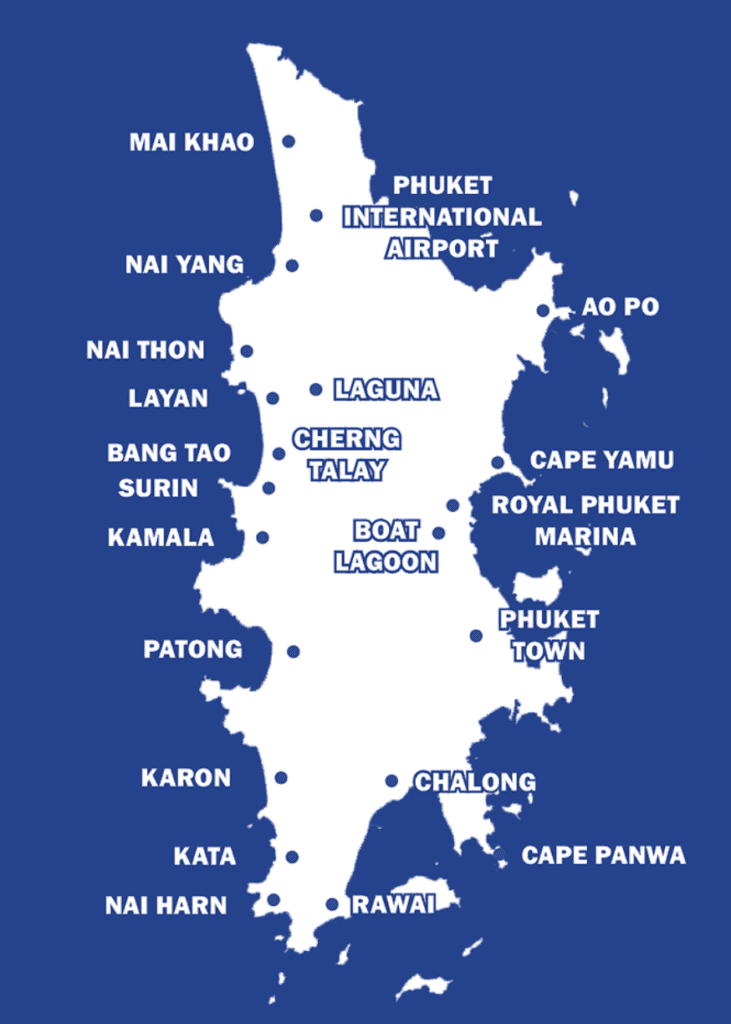

Area in Square Kilometres/Miles : 576 km2 / 222 mi2 including outlying islands
Population : ca. 600,000 including migrant workers and expatriates
Population Growth Rate : 7.4%
Number of Islands in Phuket Province : 32
Highest Point : 1,736 feet (529 metres)
Main Agricultural Products : Rubber, palm oil and pineapple
Topography

Seventy percent of Phuket Island’s area is mountainous terrain, extending from north to south, predominantly on the western half of the island. The remaining thirty percent is composed of the plains in the central and eastern parts of the island, including the Kathu Valley, which extends eastward to Phuket Town.
Many of the mountains and even some of the “flat” lands are national parks and protected land. The mountainous areas are teeming with wildlife, while the plains can range from agricultural land to undeveloped forest and even scrubland.
Phuket does not have any streams which can be defined as a river, but it does have nine creeks and brooks. There are a number of small hills, some of which extend to the sea, forming headlands or capes that jut out into the water. In the South, between the mountains and the sea, the hilly land levels off before meeting the beaches.
Phang Nga Bay offers up a spectacular array of limestone karst formations and underwater caves. The Bay is also home to Phuket’s “Sea Gypsy” fishing villages. These ancient communities of Aboriginal Malay people have called Phuket home for thousands of years. Their villages are virtually unspoiled by development or tourism, and they continue to make their living from the sea, just as their ancestors have for millennia.
Phuket Island’s Climate and Weather
Officially, Thailand has three seasons: a wet season, a cool season and a hot season. The seasons in Phuket are distinctly different from the rest of Thailand, however, and even differ from the islands on the other side of the Malay Peninsula, (e.g. Koh Samui).
Most residents of Phuket tend to think of the year as having two seasons: the high season and the low/rainy season (often referred to as the“green season”). These two seasons correspond with the biannual changes in the monsoon winds.
The clearest skies and nicest weather fall between December and March, and the absolute peak season is over the Christmas and New Year period. If the purpose of a trip to Phuket is beach time, this is the time to visit.
Beach goers may head indoors during the rainier months, but the change in winds creates the perfect conditions for surfers, so the West Coast is usually full of surf boards from April/May until the seas become calmer in November/December.
For anyone thinking of investing in the Phuket property market it is important to understand the variations in weather, especially if the objective is to generate rental income. Occupancy rates vary considerably throughout the year, as they do in other holiday destinations around the world.
It should go without saying that the best time to rent out your Phuket property is when the sun is shining.
The Attraction of Phuket Island

You only have to visit Phuket island once to be enchanted by its people and culture. No matter how long you stay, you will come across foreigners who are living happily on the island, having bought a little slice of paradise.
They may have been planning their retirement for many years, and are finally in the position to make the move. So they ask themselves: “What is stopping me from calling Phuket home in retirement?”
The growth of new international schools in Phuket has also attracted young families with children looking to start a new life on the island. In some cases, one or both parents have employment in Thailand, or are looking to start a business here. Alternatively, one parent might be a weekend commuter to another Asian city, while their family stays in Phuket.
Whatever their reason for moving to Phuket, people are looking to buy or rent homes. But even those who are not moving here are buying properties to capitalise on the rental market, which they view as a solid long-term investment with good returns. If they do visit their property, it may only be for a couple weeks a year.
So what attracts people to Thailand in general, and Phuket in particular?
